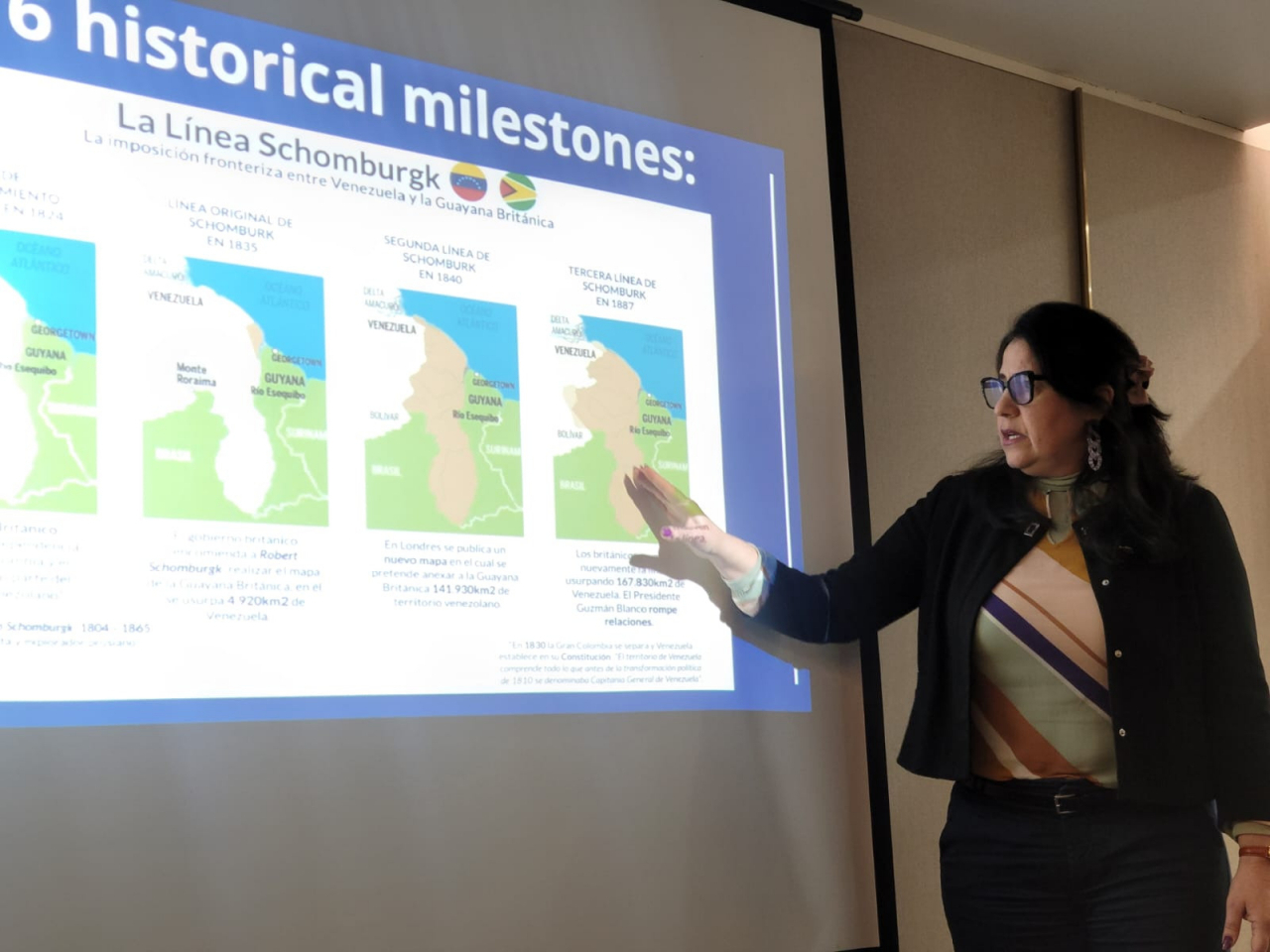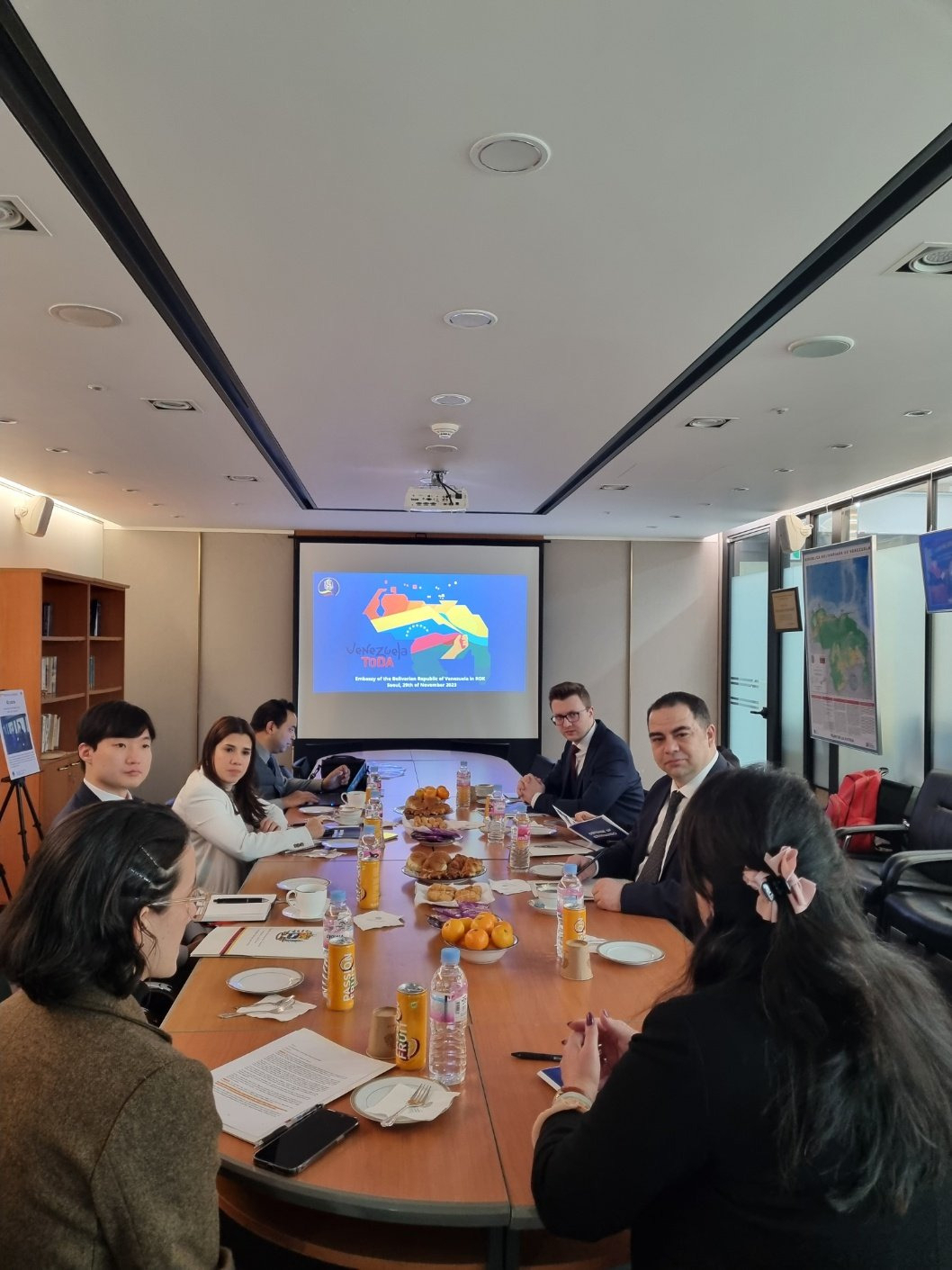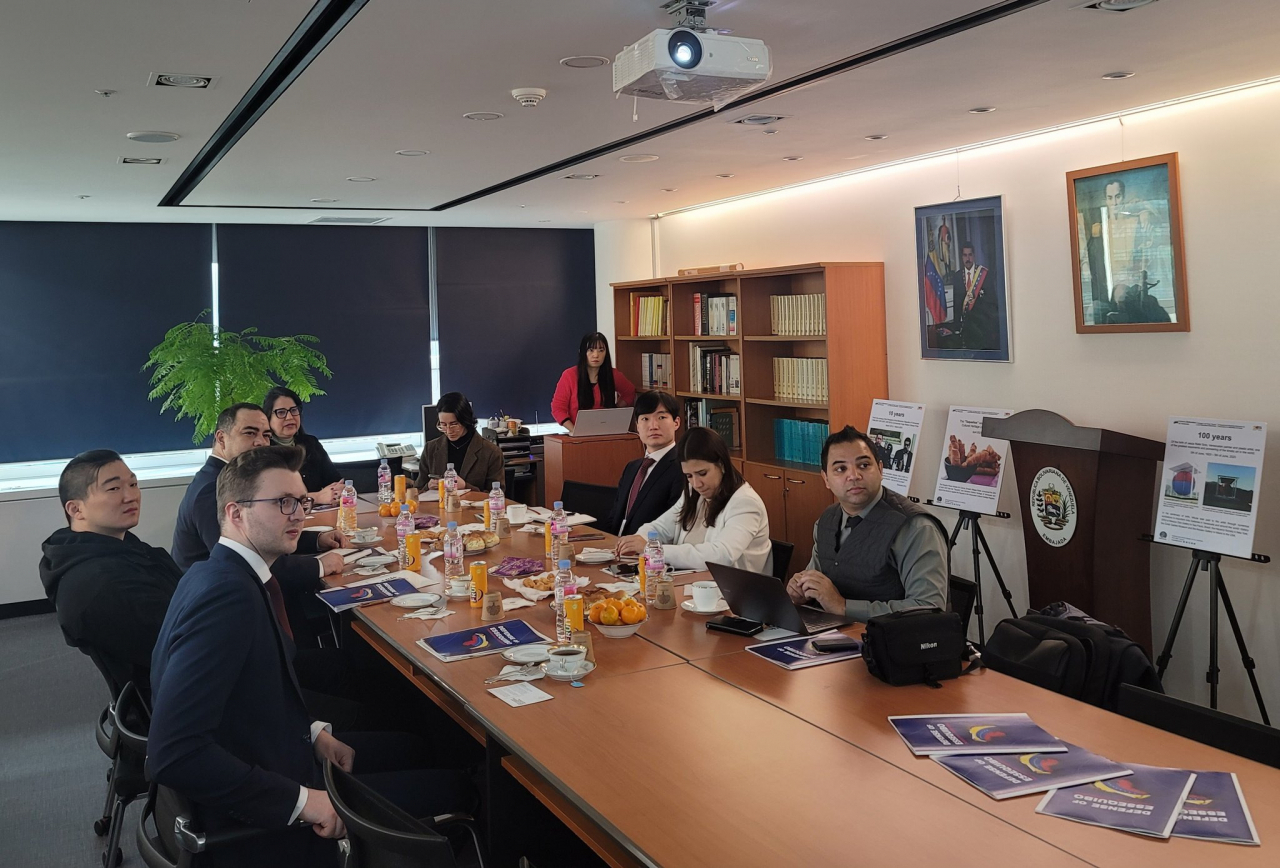Venezuelan Embassy holds disputed Essequibo territory referendum event
By Sanjay KumarPublished : Dec. 4, 2023 - 21:12

The Venezuelan Embassy in Seoul held a press briefing in Seoul last week on the current government's position to a controversial referendum that occurred Sunday over whether the Venezuelan government could claim sovereignty over the disputed Essequibo territory.
In the leadup to Sunday's referendum, the Venezuelan Embassy presented its view of the historical context to the territorial dispute and its "unwavering commitment to sovereign rights."
Venezuela's current government of Nicolas Maduro argues that it was dispossessed of Essequibo, which encompasses over two-thirds of Guyana's landmass. Formerly a Dutch and then British colony, currently Essequibo has a population of 200,000, one-fourth that of Guyana's total 800,000 inhabitants, and is rich in oil and minerals.
Venezuela claims that the Essequibo River, declared as a natural border in 1777 under Spanish rule -- before Venezuela declared independence in 1811 -- validates its claim, alleging that the UK wrongfully appropriated the territory from Venezuela in the 19th century.
However, Guyana maintains that the current border was established during the British colonial era and confirmed in 1899 by an arbitration court. Guyana denounces Sunday's referendum as a step towards Venezuela annexing the territory.
The International Court of Justice (ICJ) has upheld Guyana's position, and despite Guyana having requested it to intervene in Sunday's referendum, Venezuela has proceeded with holding it, bypassing the ICJ.

The ICJ has urged Venezuela not to take any action that would alter Guayana's sovereignty over Essequibo, but its statement did not explicitly address the referendum, so the Maduro government affirmed its commitment to moving forward with the vote.
The Venezuelan Embassy asserts that the United Kingdom took 160,000 square kilometers on the west side of the Essequibo River through what it claims was the fraudulent Paris Arbitration Award in 1899.
“The territory was taken by the United Kingdom in 1899 through the fraudulent Paris Arbitration Award, and years later was declared invalid, null and void,” Venezuelan Embassy Chargee d'affaires Isabel Di Carlo Quero said.
The referendum, which took place Sunday without observers, is a move that could reshape the geopolitical landscape of South America, according to media reports.
Venezuela's National Electoral Council claimed more than 10.5 million ballots were cast out of 20 million eligible voters, approving of the referendum.
Di Carlo Quero presented Venezuela's take on the territorial dispute, including its rejection of the historical agreements and advocating for the creation of the state of Guayana Esequiba within Venezuela.

She argued for Venezuela's historical stance of non-recognition of the Paris Arbitration Award, dating back to 1945.
She referenced the 1966 Geneva Agreement, a pact signed by the UK, Venezuela and British Guyana, which requires Venezuelan state approval before resorting to the ICJ. Venezuela rejects the ICJ's statutes, which require states to recognize its jurisdiction under any circumstances or dispute.
The referendum asked voters whether they approve of rejecting the Paris Arbitration Award, supporting the Geneva Agreement, non-recognition of ICJ jurisdiction, opposing Guyana's claim, and the creation of Guayana Esequiba state within Venezuela, said Di Carlo Quero.
Venezuela has contested this decision since the 1960s. The UK and Venezuela signed the 1966 Geneva Agreement to address the dispute, with Guyana joining upon gaining independence in May of that year.
The referendum will prompt international entities and observers to monitor closely the proceedings and aftermath, she said.



















![[Today’s K-pop] Treasure to publish magazine for debut anniversary](http://res.heraldm.com/phpwas/restmb_idxmake.php?idx=642&simg=/content/image/2024/07/26/20240726050551_0.jpg&u=)